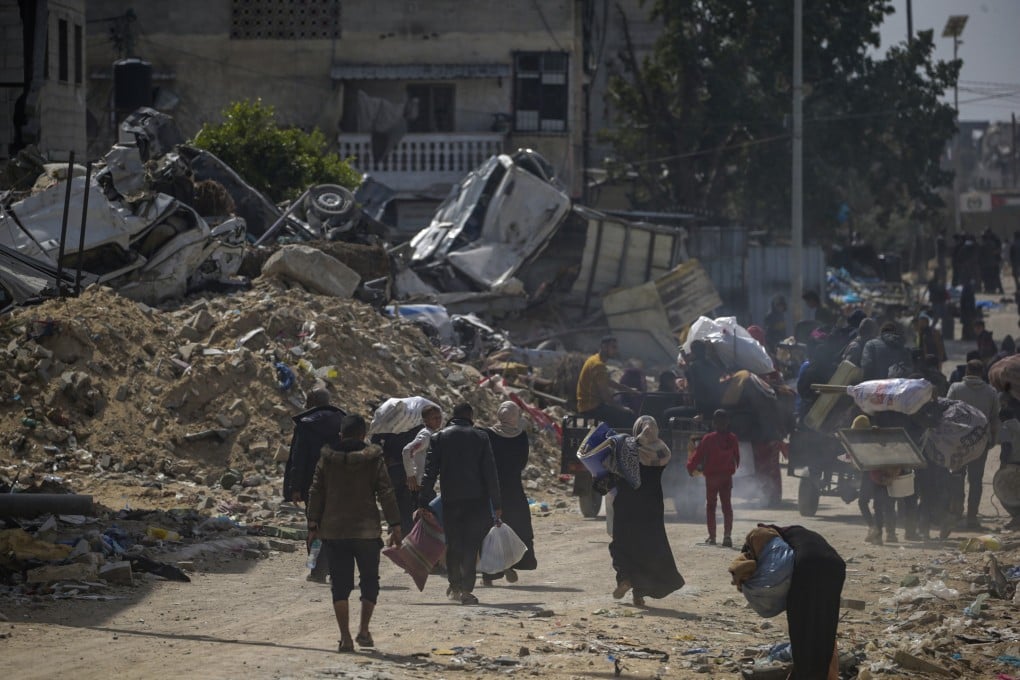‘Disgrace for civilisation’: China repeats call for Gaza ceasefire, peace talks on Middle East and Ukraine
- Chinese foreign minister calls for stable Europe and for ‘Arab and Jewish nations’ to coexist peacefully, backs full UN role for Palestine
- It is a ‘tragedy for humankind’ that Gaza humanitarian disaster cannot be stopped, Wang Yi tells ‘two sessions’ press conference

Describing the humanitarian situation in the Gaza Strip as a “disgrace for civilisation”, Wang stressed the importance of the peaceful coexistence of “Arab and Jewish nations” as well as a stable European continent, while avoiding direct criticism of any side.
In response to a question from an Egyptian reporter on the situation in Gaza and the blocking of humanitarian aid to its besieged population, Wang said “an immediate ceasefire” was the “overriding priority”.
“It is a tragedy for humankind and a disgrace for civilisation that today, in the 21st century, that this humanitarian disaster cannot be stopped,” Wang said, as he called for all international humanitarian aid to be made available to the strip.
Wang also said China supported full UN membership for Palestine, while urging a political settlement to the crisis with Israel under the “two-state solution”.
“We support Palestine’s full membership in the United Nations,” Wang said, calling on “individual Security Council members to refrain from placing obstacles in its way” – in what was a veiled swipe at the United States.
